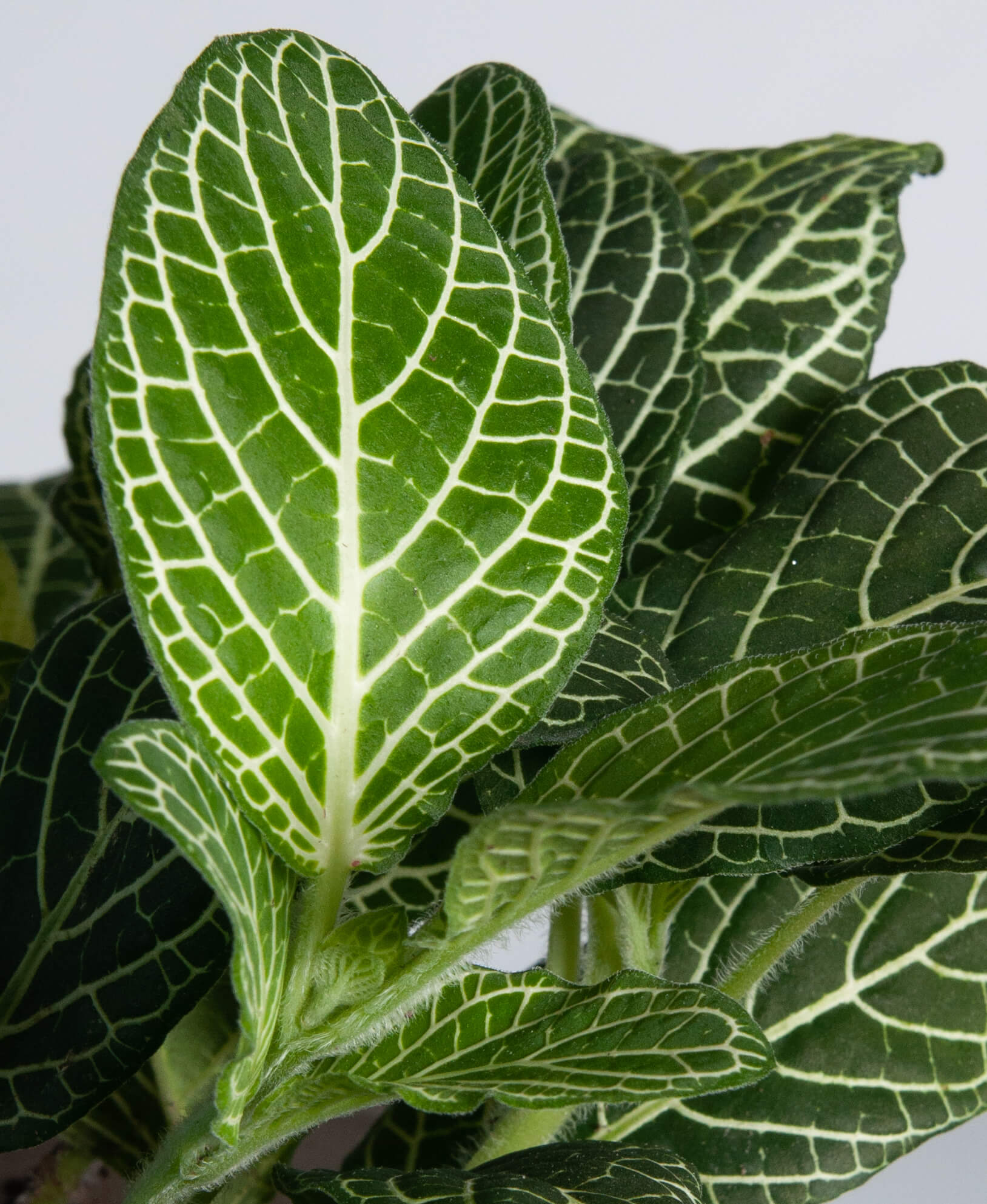Introducing Fittonia: The perfect addition to any cat-friendly home that combines beauty and safety. Read on to discover its lush foliage, non-toxicity, and more.
Why Fittonia?
When decorating your home, it can be challenging to find plants that are both visually appealing and safe for your beloved feline companion. Many common houseplants can be toxic to cats, posing a potential health hazard.
Fittonia: A Safe Choice for Cat Owners
Fittonia stands out as an excellent choice for cat owners. It belongs to the non-toxic Acanthaceae family, making it harmless to your furry friend. With its striking foliage and ease of care, Fittonia adds a touch of lush greenery to your home without compromising your pet’s safety.


Fittonia with beautiful foliage
Unveiling Fittonia
Fittonia, commonly known as the Nerve Plant, is native to the tropical regions of Peru and Colombia. It is characterized by its vibrant foliage, which features intricate patterns of veins that resemble the human nervous system. These veins come in a range of colors, including white, pink, and red, creating a stunning visual effect.
History and Myth of Fittonia
Fittonia is named after the English botanist and author Elizabeth Fitton. In Victorian England, the plant was believed to have the power to enhance memory and concentration. Some cultures also attributed medicinal properties to Fittonia, using it to treat ailments such as headaches and stomach problems.


Fittonia leaves with intricate patterns
Unveiling Fittonia’s Hidden Secret
Beyond its visual appeal and non-toxicity, Fittonia possesses a unique ability to purify the air. It is effective in removing harmful toxins, such as formaldehyde, from the environment, creating a healthier indoor space for both you and your cat.
Fittonia Varieties
Fittonia boasts a wide range of varieties, each with its own distinct leaf patterns and colors. Some popular varieties include:
- Fittonia albivenis: Features white veins on green leaves.
- Fittonia verschaffeltii: Displays pink veins on green leaves.
- Fittonia argyroneura: Showcases silver veins on dark green leaves.
Tips for Caring for Fittonia
Fittonia is a relatively low-maintenance plant that thrives in warm, humid environments. Here are some tips for keeping your Fittonia healthy and happy:
- Light: Prefers bright, indirect light. Avoid direct sunlight, as it can scorch the leaves.
- Water: Water regularly, keeping the soil moist but not soggy. Allow the top inch of soil to dry out between waterings.
- Humidity: Fittonia prefers high humidity. Mist the leaves regularly or place the plant on a tray filled with pebbles and water.
- Fertilizer: Fertilize monthly during the growing season with a balanced liquid fertilizer.
Troubleshooting
If your Fittonia is not thriving, here are some common problems and solutions:
- Brown or yellowing leaves: This can be caused by overwatering, underwatering, or lack of humidity.
- Drooping leaves: This can indicate underwatering or a lack of light.
- Leggy growth: This can happen when the plant is not receiving enough light.
Fun Facts about Fittonia
Did you know?
- Fittonia is also known as the “Mosaic Plant” due to its intricate leaf patterns.
- It is a popular choice for terrariums due to its compact size and ability to thrive in humid environments.
- Fittonia can help to reduce stress and improve air quality in your home.

How to Propagate Fittonia
Propagating Fittonia is easy. Simply follow these steps:
- Take a cutting of a healthy stem, about 4-6 inches in length.
- Remove the bottom leaves from the cutting.
- Dip the end of the cutting in rooting hormone (optional).
- Plant the cutting in a pot filled with moist potting mix.
- Water the cutting and place it in a warm, humid location.
What if My Cat Eats Fittonia?
While Fittonia is non-toxic to cats, it is still important to discourage your pet from eating it. Ingesting large amounts of plant material can cause digestive upset, vomiting, or diarrhea. If you are concerned that your cat has eaten Fittonia, contact your veterinarian immediately.
Benefits of Fittonia
In addition to its non-toxicity and air-purifying abilities, Fittonia offers several other benefits:
- Adds beauty to your home: Its vibrant foliage and compact size make it a stylish addition to any room.
- Improves air quality: Fittonia helps to remove harmful toxins from the air, creating a healthier indoor environment.
- Reduces stress: Studies have shown that being around plants can help to reduce stress and improve mood.
- Easy to care for: Fittonia is a relatively low-maintenance plant that is suitable for both beginners and experienced plant owners.

Question and Answer
Q: Is Fittonia safe for cats?
A: Yes, Fittonia is non-toxic to cats and is a safe choice for cat-friendly homes.
Q: How often should I water Fittonia?
A: Water Fittonia regularly, keeping the soil moist but not soggy. Allow the top inch of soil to dry out between waterings.
Q: What is the ideal humidity level for Fittonia?
A: Fittonia prefers high humidity. Mist the leaves regularly or place the plant on a tray filled with pebbles and water.
Q: How can I propagate Fittonia?
A: Propagating Fittonia is easy. Simply take a cutting of a healthy stem and plant it in a pot filled with moist potting mix. Keep the cutting in a warm, humid location.
Conclusion of Fittonia: A Lush And Non-Toxic Addition To A Cat-Friendly Home
Fittonia is a beautiful and non-toxic plant that is perfect for cat-friendly homes. It adds a touch of lush greenery to your space without compromising your pet’s safety. With its easy-to-care nature and air-purifying abilities, Fittonia is an ideal choice for both plant lovers and cat owners alike.
